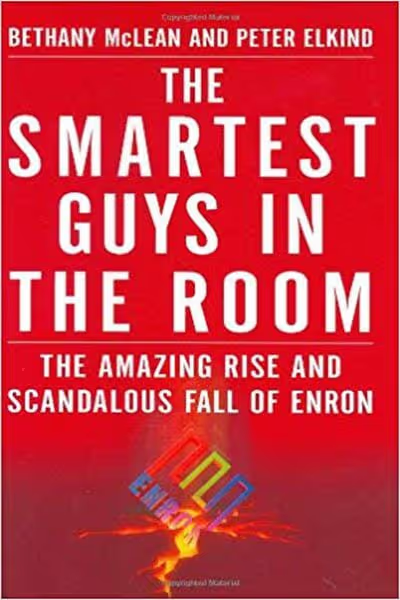.avif)
Divergent Mind: Thriving in a World That Wasn’t Designed for You is a must read for women that struggle with different sensory-processing experiences. I felt validated after reading this short read through to the end since most of the public, including medical professionals are quick to dismiss women’s concerns with autism.
There is a stigma placed on women that have autism, ADHD, synesthesia, and other similar disorders– they are not believed. According to the public and many of the medical field autism especially is considered a disorder that males have, not females. The reasoning for this is because women present their symptoms of autism differently than men, therefore causing women to be underdiagnosed.
I am one of many women who haven’t been diagnosed with autism. During my childhood, I was diagnosed with ADHD and put on every single ADHD medication in the book before my childhood therapist even considered that I might be on the spectrum. By that time, I was a few months shy of turning 18. My mom had said no to trying anymore ADHD medications and we had given up on finding ways to support my difficulties with social interaction among other issues about 6 years prior. I am currently working on getting myself diagnosed with autism, but it is much harder to find someone with the expertise to diagnose an adult with autism, let alone a grown woman.
Jenara Nerenberg’s book describes real stories told by other women that have had sensory differences including autism. One of the women that Nerenberg talked with about her experience shared this story that really resonated with me
“She used to go to the store and ask, ‘Where are the apples?’ Although she thought she was using her normal voice, others would think that she was being rude and abrupt and yelling at them. She says that people– her ‘interface with the world,’ as she puts it– provides the most challenge. ‘I have to slow down and make small talk first,’ she says.
This was one of the main symptoms that came to light for me, much less now that I am an adult. When I was a child, others always thought I was yelling when I was talking. It was almost like I couldn’t hear how loud I was talking and their response to me was “Shhh!” or “Morgan, you’re yelling”. I often took offense because I felt like they weren’t listening to what I was saying. A lot of times I would shut down and stop talking altogether for certain amounts of time so that no one could tell me that I was being too loud.
Nerenberg’s book is separated into two sections with the first one breaking down autism, synesthesia, and ADHD using her own knowledge from studying at the Harvard School of Public Health along with the stories that she gathered from interviews with the countless women mentioned throughout her book. The second section shifts from explaining what they are to what needs to happen next to further understand neurodiversity.
One of the first steps in truly understanding neurodiversity is expanding our definition of care for mental health. This section starts with Chris Cole, a therapist for those in addiction recovery who specializes in bipolar disorder and alternative framing of mental health challenges. When asked how he works with highly sensitive clients, his response is
“Being able to really validate the person for their sensitivity is important. There’s such a tendency to be pathologized for being sensitive, and this pathologization– because we are social creatures– makes it vital to have another person reflecting back the positivity and wisdom of the sensitivity. I'm not very prescriptive, and I’m really asking open-ended, curious, motivational questions so that the therapeutic experience is personalized to them… My job as an advocate for helping people to think about this through a neurodiversity lens is to ask the person to consider which symptoms are a problem. That restores agency. And then figure out steps toward basic harm reduction and improving quality of life.”
Despite what the words "attention deficit" imply, ADHD is not a deficit of attention, but rather a challenge of regulating it at will or on demand.
As a successful Harvard and Berkeley-educated writer, entrepreneur, and devoted mother, Jenara Nerenberg was shocked to discover that her “symptoms”--only ever labeled as anxiety-- were considered autistic and ADHD. Being a journalist, she dove into the research and uncovered neurodiversity—a framework that moves away from pathologizing “abnormal” versus “normal” brains and instead recognizes the vast diversity of our mental makeups.
When it comes to women, sensory processing differences are often overlooked, masked, or mistaken for something else entirely. Between a flawed system that focuses on diagnosing younger, male populations, and the fact that girls are conditioned from a young age to blend in and conform to gender expectations, women often don’t learn about their neurological differences until they are adults, if at all. As a result, potentially millions live with undiagnosed or misdiagnosed neurodivergences, and the misidentification leads to depression, anxiety, low self-esteem, and shame. Meanwhile, we all miss out on the gifts their neurodivergent minds have to offer.
Divergent Mind is a long-overdue, much-needed answer for women who have a deep sense that they are “different.” Sharing real stories from women with high sensitivity, ADHD, autism, misophonia, dyslexia, SPD and more, Nerenberg explores how these brain variances present differently in women and dispels widely-held misconceptions (for example, it’s not that autistic people lack sensitivity and empathy, they have an overwhelming excess of it).
Nerenberg also offers us a path forward, describing practical changes in how we communicate, how we design our surroundings, and how we can better support divergent minds. When we allow our wide variety of brain makeups to flourish, we create a better tomorrow for us all.
Once medical professionals and the public learn how to better understand what autism, ADHD, and synesthesia are and what it means to have one of these, then we can start to help those with autism understand who they are and what that means for them. Without ending the stigmas and judgment that comes with telling others that they have autism, we are hurting those who have sensory differences while there are many ways to discover how to cope with their differences, referring back to the title of this book Divergent Mind: Thriving in a World That Wasn’t Designed for You.

.avif)









.webp)








































